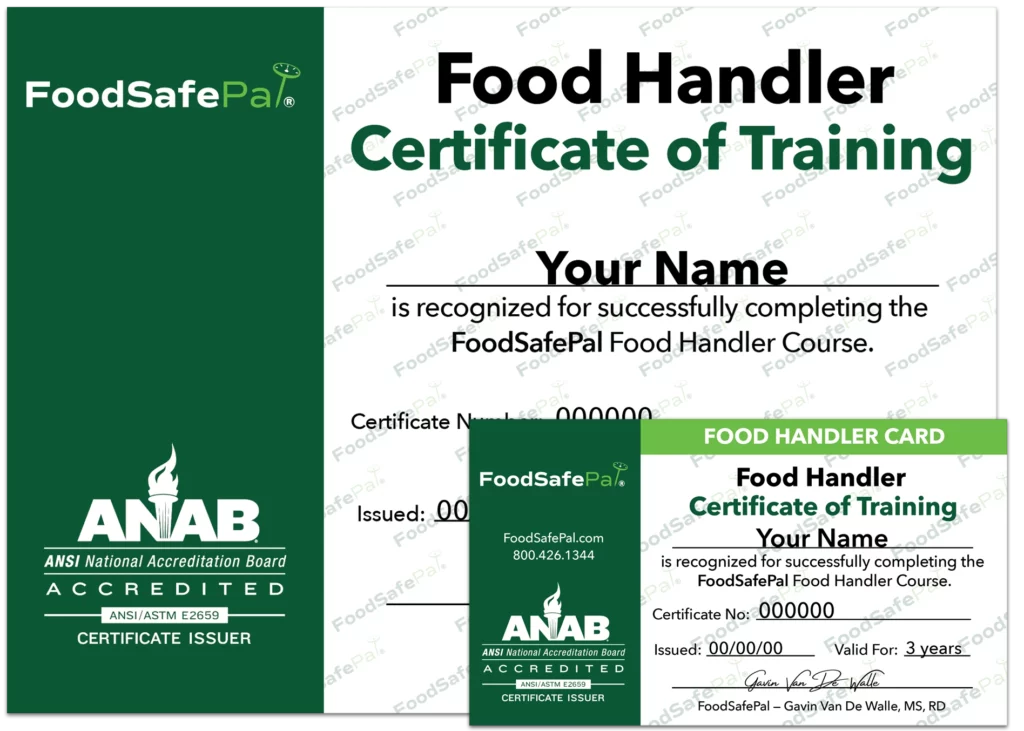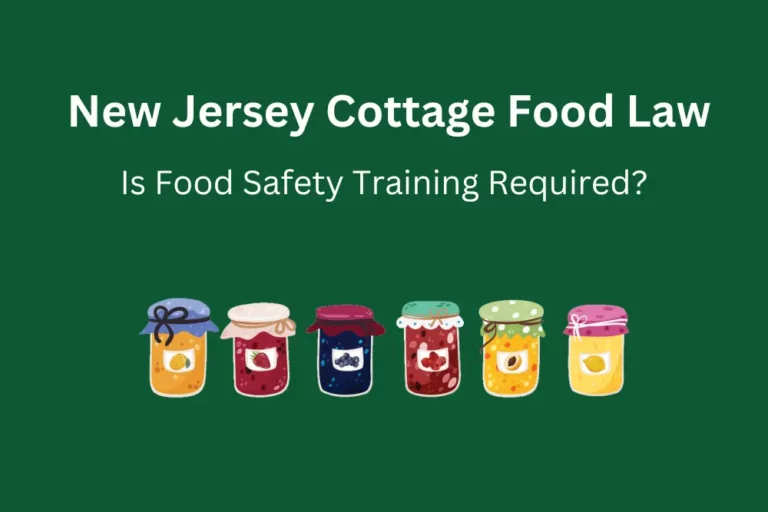Can You Sell Food with a Food Handlers Card?
Small businesses that make and sell food are becoming more common as people want to know where their food comes from and who prepares it.
These businesses might be food trucks or carts, church bake sales, or cottage food operations, among other types.
Because many areas require a food handlers card to work at a food establishment, you might wonder whether you also need one if you sell food.
This article explains whether you can sell food with a food handlers card, and if so, how you can earn one to stay compliant with your health department.

What is a food handlers card?
A food handlers card — also known as a food handlers certificate — proves that you have completed a course on important food safety principles and passed a test about the content covered.
Food handler courses educate you on the hazards that lead to foodborne illnesses or food poisoning, and how to prevent or control them to keep people — including yourself — safe.
Here are some of the topics you’ll learn about:
- handwashing and glove use
- time and temperature controls
- cross-contamination prevention
- cleaning and sanitizing procedures
- food allergens and cross-contact prevention
To work at a food establishment such as a restaurant, market, convenience store, or place that makes and serves food like a healthcare facility or school, many states and counties require that you earn a food handlers card.
In places where no state or local food handler training laws exist, many employers still require it of their employees.
Summary
A food handler card proves that you have completed a course on basic food safety topics, such as handwashing, cross-contamination prevention, and cleaning and sanitizing procedures.
Do you need a food handlers card to sell food?
Your state or local health department may require you to earn a food handlers card to sell food if you meet the definition of a food handler.
A food handler is generally defined as anyone who works with unpackaged food, food equipment, or food-contact surfaces, such as utensils, dishes, and cutting boards.
However, keep in mind that a food handlers card is sometimes called a food handlers permit, which is different than the permit or license you might need to obtain from your health department to operate your business.
Here’s a breakdown of whether you need a food handlers card to sell food, depending on the activity:
Cottage foods
Cottage foods are those that generally don’t require time or temperature controls like refrigeration to keep them safe.
This includes foods like nuts, grains, seeds, dry mixes, baked goods, confectionary items, and dry roasted coffee beans.
You can usually sell cottage foods directly in-person at your home, a farmers’ market, food stands, or other temporary venue, but not through third-party vendors like restaurants, coffee shops, or grocery stores.
To operate a cottage food business, many states require some type of food safety training, usually ANAB-accredited food handler training.
These states include:
- Alabama
- Arizona
- California
- Colorado
- Connecticut
- Delaware
- Georgia
- Hawaii
- Indiana
- Iowa
- Maryland
- Nebraska
- New Mexico
- Rhode Island
- Texas
- Virginia
Other states like Illinois, Minnesota, Nevada, Oregon, South Dakota, Utah, and Washington have different food safety training requirements.
Food trucks
To operate a food truck in most states you need to become certified as a food protection manager.
The Certified Food Protection Manager (CFPM) credential is meant for those in supervisory or management roles.
Usually, at least one person be a CFPM, so if you have other employees they would need to earn a food handlers card if you operate in an area where it’s required.
These states require a food handlers card, specifically from an ANAB-accredited course:
Other states don’t have food handler training laws, but their counties might.
For example, Arizona, North Dakota, and New York don’t have state laws, but several of their counties require a food handlers card.
Churches, fairs, and the like
Whether you need a food handlers card to sell food at churches, fairs, or similar venues isn’t as straightforward as the other types of businesses.
Even in places where a food handler card is required, you may be exempt if you sell food at a church or school bake sale.
But this depends on the type of food, with the sale of foods that require time or temperature controls likely requiring food handler training.
When it comes to fairs, you usually must earn a food handler card in places where it’s required of food handlers.
Summary
To sell food, your state or local health department might require you to earn a food handlers card if you meet the definition of a food handler.
How to earn a food handlers card
You can easily earn your food handlers card online in under two hours.
However, because not all food handlers cards are the same, you must ensure you enroll in a course approved by your health department.
Most places only recognize ANAB-accredited food handler training courses, like FoodSafePal’s.
Earn or Renew Your Food Handler Card in 90 Minutes
Trusted by thousands. The fastest, most reliable way to meet your health department’s requirements.

After you enroll, complete the course lessons, taking notes as needed so you can pass the test at the end.
FoodSafePal’s food handler test consists of 40 questions, and you need to answer at least 28 (70%) correctly to pass.
If you don’t pass the first time, you can go back through the course to review and then retest.
Once you earn your food handlers card, print or save a copy on your computer or phone.
Many states that require food handlers card to sell cottage foods require proof of the food handler training with your application to obtain a license or permit.
Your food handler card will be good for three years, unless you live in Texas where it expires after two years.
Summary
To earn your food handlers card, enroll in an online course approved by your health department. Most places recognize ANAB-accredited courses. Then, complete the course and pass the test.
The bottom line
A food handlers card proves that you have completed a course on food safety and passed a test about the content covered.
Many states or local health departments require you to earn a food handlers card if you operate a cottage food business, a food truck with more than one employee, or make and sell food at a church or school bake sale.
However, remember that a food handlers card is different from the permit or license you might need to obtain from your health department to operate your business.
To earn your food handlers card, enroll in a course approved by your health department, which usually must be ANAB-accredited.
Earn or Renew Your Food Handler Card in 90 Minutes
Trusted by thousands. The fastest, most reliable way to meet your health department’s requirements.

Then, complete the course and pass the test.
Except in Texas where you must renew every two years, your food handler card will be good for three years from the date you earn it.






